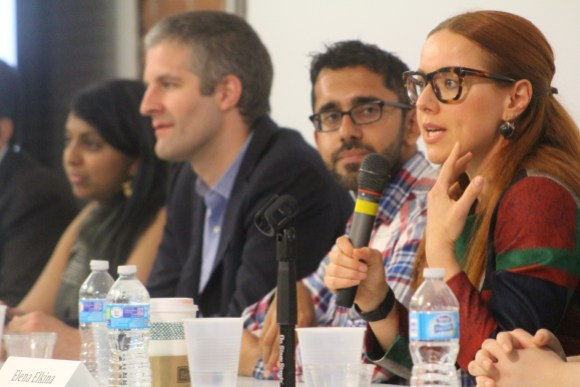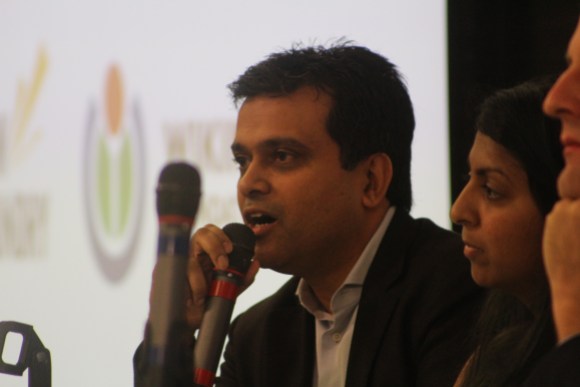
On March 3rd, 2016, the Wikimedia Foundation, in conjunction with the Internet Law & Policy Foundry, hosted a privacy panel event discussing pertinent privacy issues and recent regulations. The event, which took place in Wikimedia’s San Francisco office, included over 135 registered attendees and explored themes like consumer privacy, the EU-US privacy shield, and “big data.”
The panel featured Elena Elkina, Senior Manager, Global Privacy Office at the McKesson Corporation; Gautam Hans, Policy Counsel and Director at the Center for Democracy & Technology; Jacob Snow, Staff Attorney at the U.S. Federal Trade Commission; Michelle Paulson, Legal Director at the Wikimedia Foundation; and Shaalu Mehra, Partner at Gibson, Dunn & Crutcher. Wikimedia Privacy Fellow Tiffany Li moderated the panel.

The first half of the panel began with the panelists naming what they believed to be the top privacy issues in 2016. The panelists agreed that protecting consumer privacy should be a top concern for organizations and institutions today. Jacob addressed the privacy implications of new technology, including smart devices. Michelle noted that it will be important to watch how organizations approach the collection of data from these devices as well as the kind of regulation that will be used to prevent misuse of this data.
Concern over big data was a common theme throughout the discussion. Panelists discussed both positive and negative implications of data mining. Shaalu addressed the advantages of technology companies developing open-source data processing programs, the benefits of which have already been noticed in academia. On the other hand, Gautam warned that more data does not necessarily mean more knowledge. On that point, Elena discussed the “digital pill” and its potential to both revolutionize healthcare in a positive way, but also create a devastating impact on the safety and privacy of patients. Michelle further cautioned that data usage is causing a shift in what the average person considers to be reasonable, which, in turn, could slowly erode the somewhat subjective legal standard of a “reasonable expectation of privacy” often used to determine privacy protection.
In the second part of the discussion, panelists spoke about their career paths and gave advice to students and young professionals on how to create their own careers in technology law and policy. The general path to privacy law for the panelists seemed to be their interest in intellectual property and/or general technology, which led them to work on privacy issues. Elena told the audience to take chances and to say yes to opportunities that may not seem interesting because they may actually turn out to be so.
Audience members also had the opportunity to ask questions of the panelists, both during a formal Q&A and during the reception that followed. All in all, the panel was an elucidating discussion of privacy issues that matter today and a thoughtful exploration of what can and should be done for privacy in the future.
A video of the event is available on Youtube.
Inayat Chaudhry, Legal Fellow
Wikimedia Foundation
Thanks to Tiffany Li for her assistance in preparing this post.

Can you help us translate this article?
In order for this article to reach as many people as possible we would like your help. Can you translate this article to get the message out?
Start translation